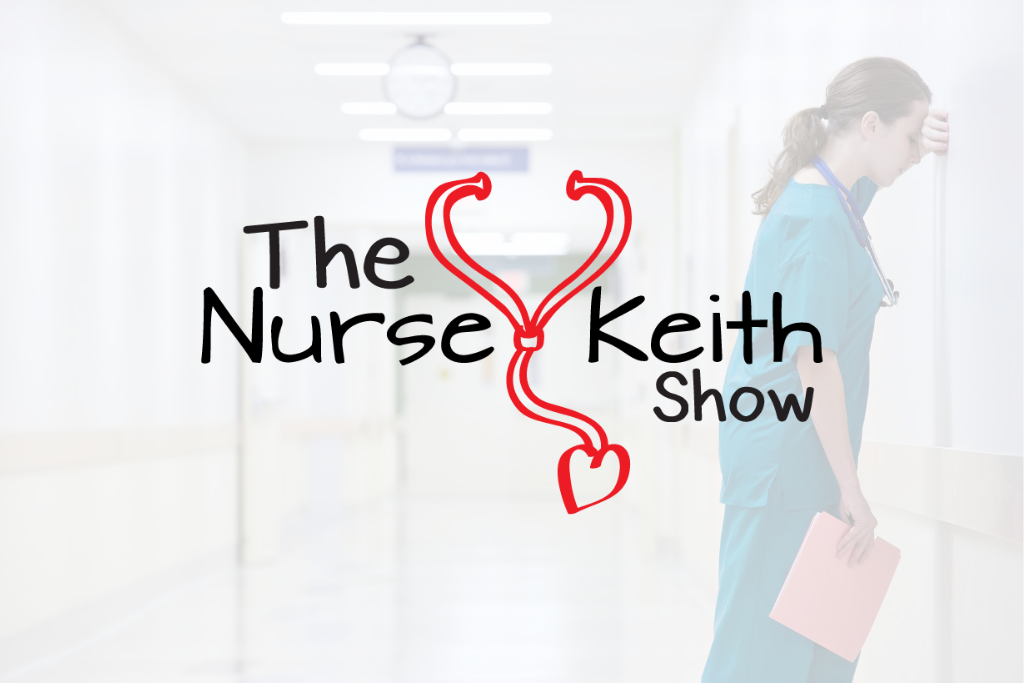Friend of Aspen, Keith Carlson, aka Nurse Keith shares his advice on how to practice self-care for nurses to evade burnout.
COVID-19 has brought an existential threat to humanity’s doorstep, and few have been untouched in these unprecedented times. Stress, anxiety, and burnout are very real for nurses, and to avoid negative consequences, disciplined attention to self-care is paramount. This is one of the most powerful tools for pushing back against the impact of the pandemic.
The Nurse Pressure-Cooker
Like anyone, nurses can play many roles, including that of mother or father, brother or sister, aunt or uncle, friend, and perhaps caregiver to elderly parents. Nurses may also be looked to for guidance and support from their faith community, neighbors, and other formal and informal networks.
Nurses may have kids learning from home, a newly unemployed spouse, and other coronavirus ramifications. As natural caregivers, nurses are apt to want to please and care for everyone, and this can be exhausting even under normal circumstances.
At work, nurses are facing staffing issues, PPE shortages, the fear of treating COVID patients, and the physical, emotional, mental, and spiritual toll of pandemic nursing. Whether working in acute care, home health, dialysis, or a clinic, the pressure-cooker is a real and present danger.
The symptoms of burnout can include:
- Emotional exhaustion
- Lack of motivation
- Frustration
- Decreased efficacy
- Low perception of personal accomplishment
- Job dissatisfaction
- Decreased physical and psychological energy
- Insomnia
- Headache
- Fatigue
- Depression
No matter how it’s viewed, burnout and exhaustion must be fought back against using every tool in the nurse’s toolbox.
The Usual Self-Care Suspects
The following are some of the usual recommendations for self-care for nurses you’re likely to hear, and they all make sense amidst life during the stress of the COVID-19 pandemic:
- Getting enough rest
- Eating well and staying hydrated
- Physical exercise
- Meditative practices like yoga or Tai Chi
- Candlelit baths
- Nice meals
- Time in nature or with children and pets
- Spending time watching a favorite movie
One form of self-care not always mentioned is engaging in creative pursuits, such as a form of artistic expression like drawing, knitting, or playing music. Listening to music or looking at art can also feel creatively pleasing and induce relaxation or feelings of pleasure. These may not be for everyone, but for those interested in using their hands, mind, and senses to engage, making time for creativity can be an excellent investment in wellness.
Socializing and contact with others is also important, yet social distancing can make this challenging. Still, outdoor time with friends and family with masks and proper spacing is recommended, as are calls, emails, and letters. Many families now take part in regular group video calls to maintain connection and well-being.
Hormones and Self-Care
Cortisol is a stress hormone that can flood the body under challenging circumstances, and we all know what it feels like to be in fight, flight, or freeze. One way to counter stress hormones like cortisol is to engage in activities that flood the brain and body with hormonal counterbalances.
Oxytocin is released during breastfeeding and bonding between mother and infant but is also released during lovemaking, cuddling (including snuggling a pet), and other forms of physical closeness.
Dopamine is another endogenous “feel-good” chemical released when we expect a reward of some kind. Even the anticipation of pleasures like physical intimacy or good food can cause its secretion. For the nurse encountering life stressors during COVID-19, experiencing pleasure is even more critical than ever and should be a mainstay of self-care in such difficult times.
Even More Proactive Steps
When the pandemic brings professional and personal stressors to the forefront, concerted action beyond baths, sex, sunsets, and movies may be called for.
A nurse at the very edge of stress tolerance may need to contact their workplace Employee Assistance Program (EAP) or engage with a psychotherapist or counselor through insurance or self-pay. Meeting regularly with a trusted faith leader can also provide comfort. The recent surge in the availability of telehealth can make accessing such services much more convenient.
If you feel pushed to the limit, taking paid or unpaid time off may be necessary. Being able to proactively turn away from forms of maladaptive coping like cigarettes, drugs, gambling, and alcohol in the interest of healthier pursuits is yet another radical notion of self-care. Your limit for stress is unique based on your make-up, life experiences, mental health status, social supports, and myriad other factors. Knowing yourself and being fully awake to your own needs is a very powerful first step in recognizing when you’re close to your edge.
In pursuing ways to develop stress tolerance and bounce back, nurses can also study emotional and behavioral intelligence and how such techniques can be helpful in dire times. Through increased emotional intelligence, we’re more able to recognize and label the emotions that we or others are demonstrating, and behavioral intelligence helps us understand the most favorable responses.
Learning skills in assertiveness, mediation, and conflict resolution can empower the nurse to speak up for themselves and move through difficulties. Yet, these skills – along with emotional and behavioral intelligence — are learned over the long-term.
Self-care in the time of COVID-19 must be as multifaceted as the impact of the virus on our lives and careers. There are no easy solutions, and we may need to think outside the box if we feel at the outer limit of our ability to handle the stress.
As a nurse always taking care of others, be willing to admit when you may need help to avoid burnout to the point of no return.
 Keith Carlson is a registered nurse, career coach, writer, podcaster, social media influencer, motivational speaker, popular career columnist, and award-winning nurse blogger.
Keith Carlson is a registered nurse, career coach, writer, podcaster, social media influencer, motivational speaker, popular career columnist, and award-winning nurse blogger.
His podcast, The Nurse Keith Show, offers inspiration and support for nurses seeking meaning and satisfaction in their personal and professional lives. He was also co-founder and co-host of RNFM Radio, a ground-breaking and influential nursing podcast.
Keith’s message of dynamic empowerment reaches thousands of nurses worldwide. He can be found on Facebook, Twitter, LinkedIn, Instagram, and NurseKeith.com.
He lives in Santa Fe, New Mexico with his adorable and remarkably intelligent cat, George.

